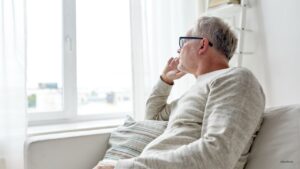Sleep is not one-size-fits-all, especially when it comes to biological sex. New research sheds light on how men and women experience sleep differently, influencing their susceptibility to various sleep disorders.
According to a recent literature review published in Sleep Medicine Reviews by researchers from Harvard University, Stanford University, and the University of Southampton, men are more prone to obstructive sleep apnea, whereas women often struggle more with insomnia and report lower sleep quality.
Dr. Renske Lok, a postdoctoral fellow at Stanford Center for Sleep and Circadian Sciences and coauthor of the study, emphasizes the importance of personalized medicine in addressing these disparities: “We’re moving away from the idea of a universal approach to sleep disorders. Tailoring treatments based on biological sex is crucial.”
Historically, biomedical research has largely excluded women, assuming that findings from male subjects apply universally. This oversight has only recently begun to change, with the National Institutes of Health mandating the inclusion of sex as a biological variable in research since 2016.
Biological differences play a significant role in sleep patterns. For instance, women tend to secrete the sleep hormone melatonin earlier in the evening than men, impacting their circadian rhythms differently. This aligns with findings showing that men generally have a later sleep schedule, often conflicting with societal demands like work hours.
Dr. Alaina Tiani, a clinical psychologist at Cleveland Clinic Sleep Disorders Center, suggests cognitive behavioral therapy as an effective treatment for aligning circadian rhythms, especially for night owls adjusting to early morning schedules.
Women, on average, exhibit higher sleep efficiency and enter the rapid eye movement (REM) phase earlier than men, yet they commonly report poorer sleep quality. This paradox underscores the complexity of sleep disorders across genders.
Beyond biological factors, societal stressors significantly affect women’s sleep patterns. Dr. Eric Sklar, a neurologist and medical director at Inova Sleep Disorders Program, notes that caregiving roles and career demands often disrupt women’s sleep routines. Moreover, factors like “revenge bedtime procrastination” contribute to further disruptions.
Obstructive sleep apnea, a condition more prevalent in men due to anatomical factors like neck size, poses unique health risks for both sexes. Interestingly, women with sleep apnea are at a heightened risk of heart failure compared to men.
Despite advancements, challenges remain in understanding how menstrual cycles and hormonal contraceptives influence sleep patterns among women. Research gaps persist in this area, highlighting the need for more inclusive studies.
Dr. Lok remains optimistic about future research, emphasizing the importance of addressing these gaps to better tailor sleep treatments for all individuals. As our understanding evolves, so too can our approach to promoting healthier sleep habits tailored to individual needs.
Also read: 8 Common Habits That Could Be Sabotaging Your Sleep











